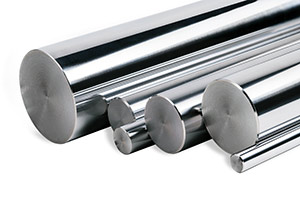Assemblies, toys, and machinery all typically use dowel pins to serve as structure or to hold units together. With no moving components and a high coefficient of friction, pins are of the most common fastening methods used. Their lower cost and quick installation also factor into this equation.
Pins work well in many applications because of their versatility. Pins fasten two or more components together, act as axles or pivots, align components, or limit movement within assemblies. Based on the project, an engineer chooses the best design and material.
Many different materials make up a pin design, including wood, plastic, and various metals. Of the metals, Suburban Industries offers the following products as well as custom manufactured pins and dowels:
- Steel – Standard with a +.0002 tolerance
- Steel – Oversize +.001
- Steel – Oversize +.002
- Steel – Undersize -.0002
- Steel – Unhardened (standard tolerance +.0002)
- Steel – Black Oxide (standard tolerance +.0002)
- 300 Series Stainless – +.0002
- 300 Series Stainless – +.001
- 300 Series Stainless -.0002
- 316SS +.0002
- 416SS +.0002
- Metric pins – Steel, 300 and 316
- Aluminum
- Brass
- Monel
- Titanium
- Standard Pull Pins – Steel + 300SS (Non Vented & Vented)
- Metric Pull Pins – Steel (Non-Vented & Vented)
+ Customs
Solid and hollow pins are available in metal form, and offer different benefits, depending on the application and usage goals. Solid pins work well when a head is needed for a positive stop, a smooth surface is needed, a hole needs to be plugged, or in many other situations. More specific configurations include the following:
- Drive: Frequently for moving and rotary applications, these are hammered into a mating hole and have an interference fit.
- Groove: Pressed into a hole, these provide interference fit to lock a fastener in place and are typically not threaded.
- Knurled: Straight, helical or headed, these pins enhance grip and used where assembly parts are locked or keyed together.
- Barbed: Designed specifically for plastic assembly use, the angled and raised barbs for a secure grip and a pilot for hole alignment.
- Pull dowel: Offering a threaded hole at one end, these allow for a screw to be inserted for removing the pin from a blind hole.
- Stepped dowel: These pins have two different diameters in body for more unique applications.
- Tapered: This type of pin features a large diameter at one end that tapers to a smaller diameter at the other end, typically at a ¼” per foot rate.
- Spiral-groove dowel: For more friction and expansion space, these pins have helical, longitudinal grooves.
- Threaded taper: These are like tapered pins, but have helical grooves, usually near the smaller end.
- Escutcheon: Featuring a small head with a tapered end, these are light duty and hammered into place.
Standard tolerances for quality metal dowel pins are +.0001 / +.0003 and most studs come standard with a nut end and tap end. Dowel pins can vary in size per an application’s requirements.

